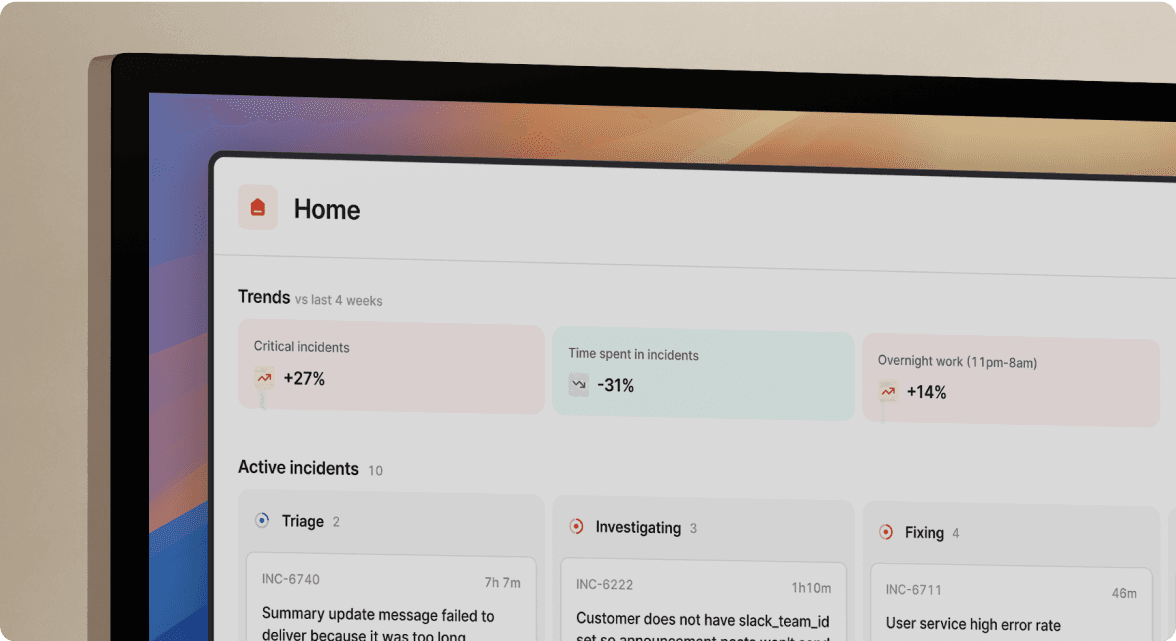Making incidents less painful with Kerim Satirli of HashiCorp & Lawrence Jones of incident.io

For a lot of teams, incident management can be a bit of a headache.
It's stressful. It's not optimized. The whole process can feel like it's being held together with tape. Worst of all? Responders are the ones feeling the brunt of it. But in reality, your customers are, too. Think about it:
- Incidents are running longer than they should
- Follow-up actions to prevent similar incidents in the future aren't being followed through with
- Learning from incidents doesn't happen at all due to the lack of documentation
- ...and the list goes on
But honestly, the situation doesn't even have to be so dire.
Things can be, generally speaking, totally fine. But you recognize that there are some things that you can do to make incident response really shine at your organization.
So if you're finding yourself looking for a better way, we've got you covered.
In this episode, you'll hear from two folks who have years of combined experience responding to incidents: Kerim, a Senior Developer Advocate at HashiCorp, and Lawrence, a Product Engineer here at incident.io.
The topic of our conversation? How to make incidents less painful. They discuss:
- The first incident they experienced that made them realize the value of a good incident response process
- Why teams aren't prioritizing incident response
- What the value of responding to incidents is
- What a good incident response process looks like
- ...and more
You may also be interested in

2025 founders year in review: insights, highlights, and future plans
Three founders, one kitchen table, and a very honest end of year conversation. In this episode we look back on 2025, from moving continents and growing the company at pace, to ski trips that probably should not have happened, live demos that absolutely could have gone wrong, and the small moments that made the year memorable.

How we're shipping faster with Claude Code and Git Worktrees
In this episode, CTO Pete and Product Engineer Rory B. discuss how we’re using Claude Code and Git Worktrees to allow engineers to build multiple features in parallel.

Shipping faster with AI with Leo P.
In this episode, we chat with Product Engineer Leo about how we’re using AI tools like Claude Code to ship more product, more quickly.
So good, you’ll break things on purpose
Ready for modern incident management? Book a call with one of our experts today.

We’d love to talk to you about
- All-in-one incident management
- Our unmatched speed of deployment
- Why we’re loved by users and easily adopted
- How we work for the whole organization



